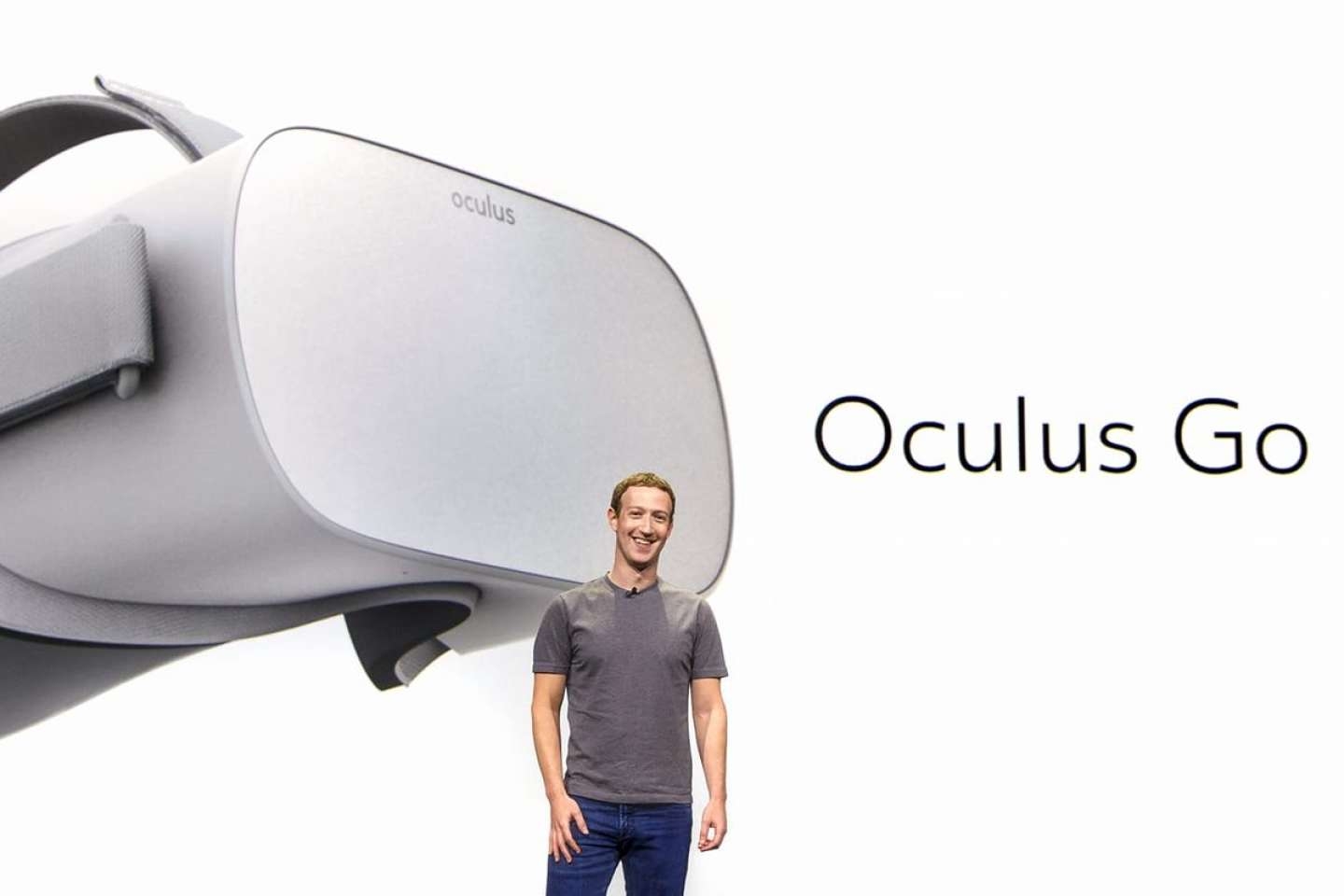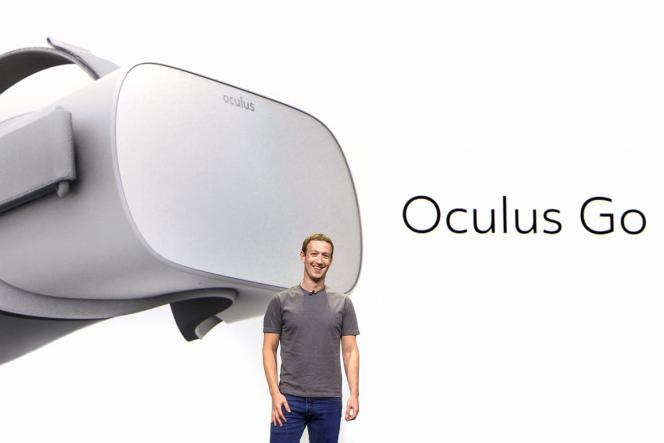Facebook announces Oculus Go, a $200 wearable virtual reality headset

 Mark Zuckerberg is trying to revive sales of virtual reality headsets with an entry-level wearable model. FACEBOOK
Mark Zuckerberg is trying to revive sales of virtual reality headsets with an entry-level wearable model. FACEBOOK
Facebook is not giving up. After a first year of trial and error, the major social media group reaffirmed on Wednesday, October 11, its desire to impose itself on the virtual reality (VR) headset market. On the occasion of the annual VR forum, Oculus Connect, Oculus announced the release in 2018 of the Oculus Go, its first portable and autonomous virtual reality headset.
It will not require a smartphone or a PC to work, but will carry all the necessary electronics, with a few less functions, such as space recognition. It will be sold for less than 200 dollars – the European price has not been communicated.
The price of his standard headset, the Oculus Rift, finally goes up to 400 dollars. On the occasion of this event, Mark Zuckerberg announced that he wanted to “reach a billion people” equipped with compatible headsets. His company launched Facebook Spaces in the spring, a virtual reality social network for its helmet ranges. At the same time, he announced that he wanted to work on augmented reality and mixed reality, two options that do not require being cut off from the outside world, and on which Apple and Microsoft are focusing
Read also Mark Zuckerberg apologizes for his strange virtual reality video in Puerto Rico
Niche market
Bought at a gold price by Facebook in 2014, Oculus has been at the origin of the widespread runaway around virtual reality in recent years. The spectacular success of his collaborative fundraising campaign on Kickstarter, however, was not followed by an adoption by the general public. According to the 3D technology company Epic, Oculus’ headset would sell for half as much as HTC’s, the Vive, in 2016.
Above all, the virtual reality market is struggling to take off. If Facebook is careful not to give figures, several clues attest to a less flourishing market than promised. Since the launch at the beginning of 2016 of the final version of the Oculus Rift, it equips only 0.18% of monthly users of Steam, the main computer gaming platform, a figure that tends to stagnate for several months.
Interviewed by The Verge, James Liff, co-founder and creative director of the virtual reality video game studio Survios, agrees that “it’s not big sun and rainbow [sur le marché de la réalité virtuelle]. We are mostly in a tunnel of disillusionment”. For the year 2017, the Super Data analysis firm is counting on 213,000 Oculus Rift sold, against 305,000 Vive. The prospect of the “billion users” seems largely virtual at this stage.








